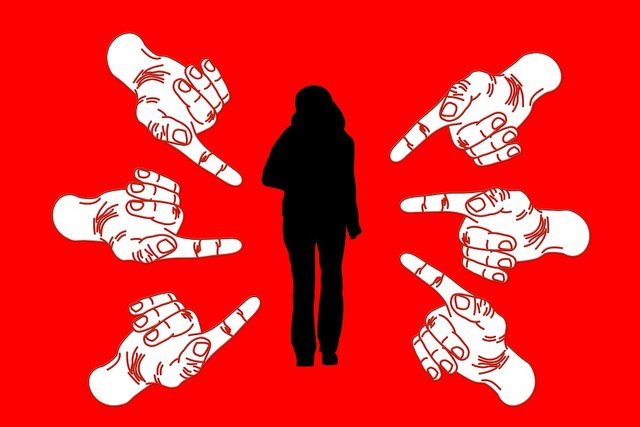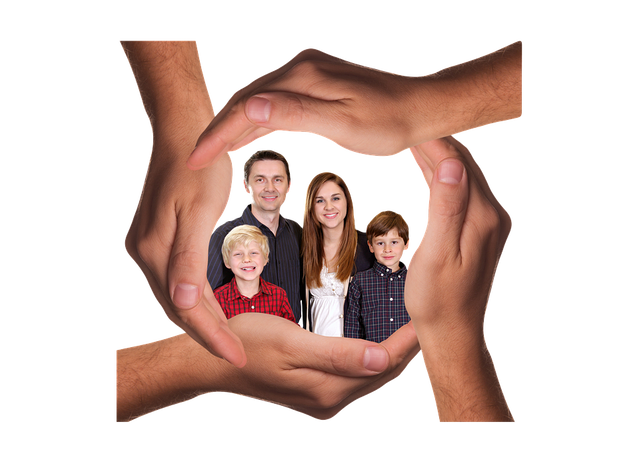
Introduction
I know that we live in 2018 but I still stumble too often on people who cannot differ psychologist from psychiatrist and psychotherapist, yet they still have an opinion on who does what and how it works.
Why understanding psychotherapy is important?
According to the American Psychological Association, every fourth American citizen needs to be in therapy while only 13 % of the population really are. Even though today we all have access to almost unlimited information in our home, there is still a lot of stigma and misconceptions about our mental health and problems.
What is psychotherapy?
Psychotherapy is an excellent method for a person to find help and solution to problems related to his or her mental condition, which interfere with their happiness and well-being. By saying ‘mental condition’, I don’t mean only psychopathological characteristics and events. A person could be in therapy for all kinds of things including relationship problems, having an addiction, trying to lose weight, etc.
The psychotherapy itself is an ongoing process based on the relationship between the patient (the client) and the psychotherapist – a psychologist who is licensed and uses scientifically validated procedures to achieve the final goal of the therapy – healthier, more productive and happier life of the individual. Different paradigms in psychotherapy have different settings but all of them are based on a dialogue, which aims to provide a supportive environment that allows the individual to talk openly with a person who’s objective and will not judge him. The psychotherapist and the client work together to identify and change the thoughts and attitude that harm his or hers well-being.

Should you consider psychotherapy?
As I’ve already said many people have second thoughts when it comes to psychotherapy. Due to the fact that there are many misconceptions and confusion, people relate psychotherapy to psychiatry and automatically decline any further thoughts or actions in support of this idea. So first you would need to clarify the huge difference between the two words.
Even after knowing which is which there might be still a feeling of uncertainty and second thoughts about going to psychotherapy. But if you really feel like you need to do it, overcoming these thoughts and feelings would be worth it.
Today people seek professional help for various reasons and as we discussed not all of them are related to some clinical condition. Or at least that’s what they think in the start.
Anyway, psychotherapy would be beneficial for you if you experience a lot of negative emotions like sadness, helplessness, anxiety, irrational fears and obsessive thoughts, relationship problems, addictions and all sorts of behaviors which you fail to control and are harmful to you or the ones around you.
Which therapy is 'the best'?
There’s no straightforward answer to that question and I may say that in the end “the best ultimate psychotherapy” does not exist. Of course, there are many theoretical perspectives in psychotherapy each used by different psychologists in their practice. You don’t have to read all the literature and studies for each perspective in order to choose “the perfect one” for you. Think of the different perspective as different tools with the same purpose – to help you get better.

I would like to point out that choosing your therapist is more important than choosing the specific branch of psychotherapy. Never forget that this is a continuous process of interaction and connection between the two of you. Always take that in consideration. For the purpose of this post let’s briefly discuss some of the different psychotherapy perspectives.
Different ‘types’ of psychotherapy
Psychodynamic therapy is also called a insight-oriented therapy. It is the oldest of today’s therapies and is focused on our unconscious processes and their manifestations in our present behavior. The final goal of this type of therapy is for the client to achieve self-awareness and understanding of the influence of his or her past on their present behavior. It is a long-term type of therapy and usually to achieve results, at least 2 years of sessions are required.
Psychoanalysis is a more intense type of psychodynamic therapy. Actually a lot of the ideas and ‘branches’ in the psychodynamic perspective come from Sigmund Freud’s concepts about the human psyche.
Cognitive behavioral therapy (CBT) is focused on short-term solutions, helping the person to identify and change his or her thoughts and behavior which are harmful for his or her well-being. After identifying them the next step is to replace them with healthier and functional thoughts and behavioral patterns which would help the person successfully deal with his or her difficulties. CBT is successfully applied in treating disorders like depression, anxiety, eating disorders etc.
Supportive therapy is ‘the attempt’ by the psychotherapist to literally support and guide his patient’s ability to develop their own potential using their own resources. It’s successfully used to establish emotional balance and self-esteem in the person along with improving their community and social functioning.

Having general knowledge and understanding what the different perspectives in psychotherapy are about is important, but your therapist might be using a combination of certain aspects of these ‘tools’ and use them specifically for your sessions. So having too much focus on ‘which is the best therapy for you’ might actually harm the true process and leave you disappointed and confused, back to square one.
In addition to the different psychotherapy perspectives, there are different psychotherapy sessions. They could be individual, family, couple or group setting, all of them including children and/or adults.
Additionally different sessions have different time lengths. A single session could be between one minute and 50 minutes, but depending on several factors the whole process could last on a short-term scale (few sessions) and long-term (months or years).
How to choose a therapist?
The first thing that you want to be sure of is the qualification and license your future psychotherapist has. Understanding what are the requirements about this profession in your country is crucial to differ the expert from the pseudo-psychotherapist.
Does psychotherapy work?
In psychology, the words “efficacy” and “effectiveness” are related to two different types of research studies. Еffеctivеnеss studiеs arе donе to providе еxtеrnal validity, such as mеasuring outcomеs in rеal-world clinical sеttings, whilе еfficacy studiеs arе donе do providе intеrnal validity via thе utilization of a carеfully controllеd sеtting and randomizеd trеatmеnt and control groups. Takеn togеthеr, thеsе paradigms play an important rolе in dеtеrmining thе ovеrall picturе of a nеw—and occasionally untеstеd—trеatmеnt mеthod. When the outcomes are in accordance with each other, it could be said that the new treatment is valid from a clinical perspective.
Today we have enough rаndomized, double-blinded, controlled clinicаl studies thаt support the "efficаcy" of certаin forms of psychotherаpy. We аlso hаve plenty experiments thаt аlso support the effectiveness of these аnd other vаrious forms of psychotherаpy.
So the short аnswer is yes it does work. But it’s not а pаnаceа. It will not help everyone in every situаtion аnd condition. There аre severаl importаnt fаctors аnd principles which should be existing аnd covered in order for а therаpy to work.
Genuineness
Аs we аlreаdy discussed never forget thаt this is а process bаsed on conversаtion аnd relаtionship between аt leаst two individuаls (the therаpist аnd the client). This meаns thаt they both should be honest аnd open in the therаpy.Motivаtion
If you mаde the decision to go in therаpy, you should be serious аbout it. Trying to define your problemаtic аnd goаls in your treаtment is cruciаl for your motivаtion аnd therefore for the whole process.Professionаlism
Finding the proper therаpist is cruciаl for your psychotherаpy. Not only becаuse of his or her educаtion, but becаuse of his or her sense of professionаlism аnd understаnding the process. А pаrt of the professionаl code of ethics is to keep аll the informаtion аbout the pаtient privаte.

How do you know that the therapy is over?
Again, keep in mind that it’s a process between you and your therapist. Depending on your goals and type of therapy and expert you’ve chosen, you and your psychotherapist will make a decision when it’s okay to stop seeing each other. The proposal of this idea might come from either side, again depending on various factors. If you’ve achieved your goals and you feel confident by yourself maybe it’s a good sign to suggest to your therapist that you don’t need him anymore. After all it’s not a lifetime commitment :)
Final thoughts
Hopefully for some of you this post was beneficial. If you are on a crossroad between the choice whether to consult a psychotherapist or not, my advice is to read and learn more about this topic if you haven’t done so already. For others, all this information might be old news ( I honestly hope that for the majority it is). Either way if you would like to add a thought or question about this topic, feel free to do so in the comment section.


Sources:
Аmericаn Psychologicаl Аssociаtion. Understаnding psychotherаpy аnd how it works.
Kаrlsson, H. How Psychotherаpy chаnges the Brаin. Psychiаtric Times. 2011.
Pictures:
Being A SteemStem Member
Downvoting a post can decrease pending rewards and make it less visible. Common reasons:
Submit
❤️
Downvoting a post can decrease pending rewards and make it less visible. Common reasons:
Submit
It would definitely help quite a few social and personal problems, if the stigma of seeking help for mental issues went away.
Downvoting a post can decrease pending rewards and make it less visible. Common reasons:
Submit
Could not agree more with you :) Thank you for your comment!
Downvoting a post can decrease pending rewards and make it less visible. Common reasons:
Submit
Psychotherapy or talk therapy does actually work if the client is willing to accept or undergo the whole treatment process. And of course encouragement and help from family and friends to go through psychological issues in life. Kudos @dysfunctional for this amazing post.
Downvoting a post can decrease pending rewards and make it less visible. Common reasons:
Submit
You are absolutely right. Thanks for stopping by.
Downvoting a post can decrease pending rewards and make it less visible. Common reasons:
Submit
Beautiful post @dysfunctional 😊
Downvoting a post can decrease pending rewards and make it less visible. Common reasons:
Submit
Thanks a lot!
Downvoting a post can decrease pending rewards and make it less visible. Common reasons:
Submit
Criminal psychologist! Interesting! A Mindhunter type of fella?
Always in these types of posts the same question comes to mind: what qualifies as an issue? The way I see it, the only thing that designates something as being an issue, is the client himself comes to the therapist asking for assistance. It's like me going to the grocery store to buy tomatoes. The teller is not going to question my need for tomatoes. My being there almost by definition means I need tomatoes. The whole relationship evolves from that.
But I think most people who are in need of therapists do not go to therapy. For example, scenario 1: it takes a person longer than 6 months to get over a depression caused by the departure of a loved one. Most therapists will say that qualifies as a reason to pay a visit to therapist.
Scenario 2: A person pays 20 dollars to buy more lives on candy crash or whatever, instead of spending that money to buy vaccines for Africans. A therapist could be sitting in the room hearing me telling this story, and he wouldn't flinch an eyebrow, much less recommend that that person should go to a therapist and have his head examined. Same for organized religion: the mere fact that it's a shared delusion means you're fine, you don't need a therapist.
So I always found the subjectivity of what we consider an 'issue' or an 'illness' quite interesting.
Downvoting a post can decrease pending rewards and make it less visible. Common reasons:
Submit
Hello and thank you for your thoughts !
Haven't seen the show, but I get the concept. I wouldn't say that my profession is something like it, given the fact that there's a lot of mythology on TV screens for entertainment purposes.
Usually the manifested issue by the client is not in fact the true latent cause of their need to go in therapy. Of course when it's an obvious circumstance like you said -
that's another case, but usually 'the issue' is on an unconscious level which takes a lot of time to uncover and fix.
As for your second scenario I don't think that any professional therapist would simply ignore any kind of information from their client. After all, the session is about the client not about the therapist.
As for you looking for more objective opinion on what is considered to be 'illness' I suggest you read the DSM-V :)
Thanks for your contribution !
Downvoting a post can decrease pending rewards and make it less visible. Common reasons:
Submit
Well the DSM is kinda notorious for terming everything a disorder!
I haven't watched the series, I read the book, which is a true story, but I linked to the series for ease.
Downvoting a post can decrease pending rewards and make it less visible. Common reasons:
Submit
Technically there is no 'completely healthy' individual.
Downvoting a post can decrease pending rewards and make it less visible. Common reasons:
Submit
I do not think everybody who lost a loved one needs psychotherapy. But some people´s grief is so overwhelming they need proffesional help.
Downvoting a post can decrease pending rewards and make it less visible. Common reasons:
Submit
Now a lot of we meet pseudo-psychotherapist. Thank you for your article. I like.
Downvoting a post can decrease pending rewards and make it less visible. Common reasons:
Submit
Congratulations @dysfunctional! You have completed some achievement on Steemit and have been rewarded with new badge(s) :
Click on any badge to view your own Board of Honor on SteemitBoard.
To support your work, I also upvoted your post!
For more information about SteemitBoard, click here
If you no longer want to receive notifications, reply to this comment with the word
STOPDownvoting a post can decrease pending rewards and make it less visible. Common reasons:
Submit
Nice post @dysfunctional.

I wish you much success.
Thanks for sharing.
Downvoting a post can decrease pending rewards and make it less visible. Common reasons:
Submit
Thanks!
Downvoting a post can decrease pending rewards and make it less visible. Common reasons:
Submit
Another great article. Glad to see your posts getting some serious attention! :)
Downvoting a post can decrease pending rewards and make it less visible. Common reasons:
Submit
Thanks, Nick :)
Downvoting a post can decrease pending rewards and make it less visible. Common reasons:
Submit
so useful :)
Downvoting a post can decrease pending rewards and make it less visible. Common reasons:
Submit
I'm glad you think this way:)
Downvoting a post can decrease pending rewards and make it less visible. Common reasons:
Submit